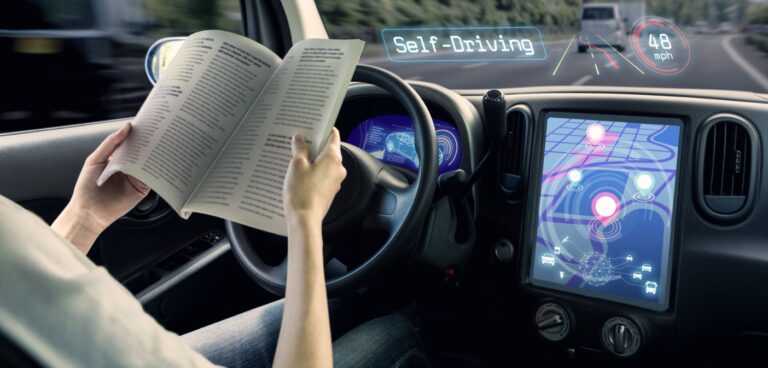UK roads could see autonomous vehicles rolled out by 2025 following the announcement of government plans – backed by £100m – that prioritise safety through new laws.
The new legislation is designed to enable the UK to take advantage of an emerging market of self-driving vehicles, which could create up to 38,000 jobs and could be worth an estimated £42bn.
UK transport secretary Grant Shapps said: “The benefits of self-driving vehicles have the potential to be huge.
“Not only can they improve people’s access to education and other vital services, but the industry itself can create tens of thousands of job opportunities throughout the country.
“Most importantly, they’re expected to make our roads safer by reducing the dangers of driver error in road collisions.
“We want the UK to be at the forefront of developing and using this fantastic technology, and that is why we are investing millions in vital research into safety and setting the legislation to ensure we gain the full benefits that this technology promises.”
Of the allocated £100m, some £34m has been confirmed for research to support safety developments and inform more detailed legislation.
This could include researching the performance of autonomous cars in poor weather conditions and how they interact with pedestrians, other vehicles and cyclists.
Some £20m will be put toward helping to kick-start commercial self-driving services and enable businesses to grow and create jobs in the UK, following an existing £40m investment.
Read more: Highway Code updated to include self-driving vehicles
Successful projects could help see, for example, groceries delivered to customers by self-driving vehicles, or shuttle pods assisting passengers when moving through airports.
Some £6m will also be used for further market research and to support commercialisation of the technology.
According to the government, vehicles that can drive themselves on motorways could be available to purchase within the next year, which users would need a valid driving licence for, so they can drive on other roads.
Other self-driving vehicles, for example used for public transport or delivery, expected on the roads by 2025, would not need anyone onboard with a driving licence because they would be able to drive themselves for the whole journey.
The government said it is consulting on a ‘safety ambition’ for autonomous vehicles to be as safe as a competent and careful human driver.
This ambition would inform standards that vehicles need to meet to be allowed to ‘self-drive’ on the roads, and organisations, such as manufacturers, could face sanctions if standards are not met.
The legislation will build on existing laws and state that manufacturers are responsible for the vehicle’s actions when self-driving, meaning a human driver would not be liable for incidents related to driving while the vehicle is in control of driving.
Read more: UK public positive about self-driving vehicles, BSI finds
Technology trade association TechUK welcomed the government’s decision to launch a consultation.
“Today’s announcement that the government will introduce a regulatory framework for autonomous vehicles by 2025 will give the industry the confidence boost it needs to invest, grow, and innovate here in the UK,” said TechUK’s associate director of markets, Matthew Evans.
“We have an opportunity to be a world-leader in the development of this exciting technology but as things stand the EU and several other jurisdictions are significantly ahead of us in terms of testing and regulation.
“We must now see the government sticking to its 2025 timeline to ensure we can remain competitive and deliver the transformative changes to how we transport people and goods that autonomous vehicles can promise.”
Today also sees the publication of the Centre for Data Ethics and Innovation’s Responsible Innovation in Self-Driving Vehicles report, which sets out proposals for a trustworthy approach to the regulation and governance of self-driving vehicles.
Read more: UK government approves use of automated lane keeping systems on motorways





